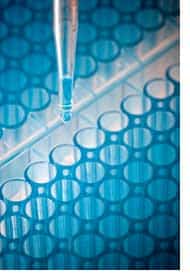
With so many home DNA tests available, it’s important to understand DNA test accuracy. DNA testing provides answers to many different questions. And the accuracy varies tremendously with what type of information you seek.
DNA Test Accuracy for Genetic Matches
The primary purpose of a genetic genealogy test is to find living people who share a common ancestor with you. Autosomal DNA tests, the most widely used, will accurately identify any tested relatives who are second cousins or closer.
Even then, the projected relationship may be uncertain. For example, the following close relatives all share the same degree of DNA: half siblings, grandparent and grandchild, and aunt/uncle with niece/nephew. The DNA is right. You just need additional information to tell WHICH of these relationships is the correct one.
The test will identify many other relatives in the second-to-fifth-cousin range. Some actual cousins will not show up as matches because you did not inherit enough common segments of DNA from your shared ancestors.
Matches beyond fifth cousins may be real matches or they may be false positives. That’s because some of the DNA you share with others is quite common among people with ancestry from the same part of the world.
My favorite autosomal DNA test for finding genetic matches is AncestryDNA. It has the largest database by far and you can transfer your resulting raw data into several other databases for free.
Some other good DNA tests for this purpose are 23andMe, MyHeritage, and Family Finder.
Genetic matches from Y-DNA or mitochondrial DNA tests MUST share a common ancestor with you in your direct paternal line (Y-DNA) or direct maternal line (mitochondrial DNA). But you can’t tell how far back that common ancestor lived and it may have been hundreds of years ago.
The clear leader in Y-DNA and mitochondrial DNA testing is Family Tree DNA.
DNA Test Accuracy for Ethnic Ancestry
Autosomal DNA tests also provide an “admixture” report that attempts to break down your overall ancestry into percentages. This mostly correlates with regions of the world where your ancestors came from.
This is a new science and DNA test accuracy is not nearly as strong as it is with the genetic matches. First, it’s not very precise. You may only see broad regions, e.g. Eastern Europe instead of Poland. Also, your results are impacted by hundreds of ancestors who lived long before your four grandparents.
The most precise test for ethnic ancestry purposes is 23andMe. Another good one is AncestryDNA.
DNA Test Accuracy for Paternity Testing
DNA paternity testing is more than 99% accurate when a man and a child match. If an exclusion is found, you can be 100% certain that this man is not the father of the tested child.
This assumes that the suspected father actually provided the sample. If you do a legal paternity test in person at a certified lab, you can be certain of that. But home testing can lead to an incorrect finding if a man who does not want to be father secretly has another man submit the sample.
A good test for DNA paternity testing is EasyDNA.
DNA Test Accuracy for Health
The question of DNA test accuracy lacks a generally applicable answer when it comes to health testing. While the test result itself may be accurate, the implications of that result can often be misleading. Having a higher than average genetic predisposition for a certain disease, for example, does not mean that you will ever have that disease.
Environmental factors and luck play such a strong role in health that only a small number of very specialized findings are certain to be meaningful. Results of any DNA test done for health results should be discussed with a competent medical professional before drawing any conclusions.
For most people, an excellent choice for both ancestry and health purposes is the Health + Ancestry option at 23andMe. If you want a far more exhaustive health test that check your entire genome, I suggest the Nebula Genomics test and their subscription.
